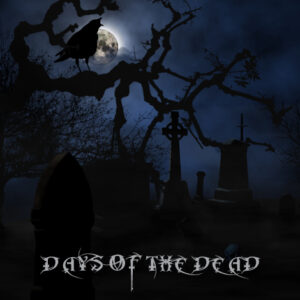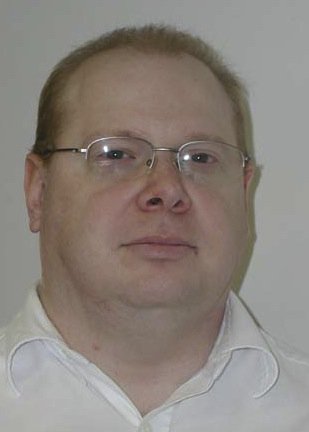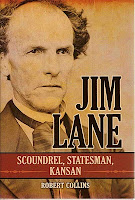Today, my friend Gail Martin stops by on her Days Of The Dead blog tour for a talk about writers and research. – BTS
By Gail Z. Martin
I love research. In fact, sometimes I almost think the book is an excuse to do the research. Almost.
Okay, I was a history major, so I came into this predisposed to be nosy about other people’s business. History is the best reality show. Forget the structure artificially imposed on history by textbook authors. History—the rise and fall of kingdoms, the great explorers, the conquest and colonization—was done by people who, on closer inspection, make the Kardashians look well-adjusted and the Mafia seem morally upright.
It’s really the story of grifters, grabbers, con men, connivers, liars, manipulators, opportunists and truly dysfunctional people who clawed their way to notoriety less from noble purpose than from unresolved psychological issues. And those are often the good guys.
Seriously, when you delve into real history—the letters and diaries by historic figures and the people who knew them and the contemporary records—you get a juicy, scandal-laden, slugfest that rivals any Jerry Springer episode. We like to make our historical figures into cleanly-delineated heroes and villains, but they weren’t—they were real people, no different from us today, no more noble or evil. A few people were in pursuit of a higher cause, but don’t cha know it, that cause usually included some benefit to them and theirs. People lied, cheated, stole, played politics, rigged the game, and had hissy fits. They also loved, grieved, wanted revenge, sought forgiveness, pondered the meaning of life, wondered if it was all worth the cost, tried to do the right thing, and occasionally rose above human nature to do something really heroic and awesome.
I write epic fantasy, urban fantasy and steampunk, so there’s a lot of research involved. Some of it is tactical, like double-checking just how far a trebuchet can throw something, or when an invention was patented, or when a word came into usage. But along the way, you stumble down more rabbit holes than Alice, finding unexpected and wondrous tidbits you can use in your story, historical oddities that add realism and interest, quirky or intriguing facts about people and situations that you can borrow and twist for your fictional universe. That’s when research is the coolest, most fun thing in the world.
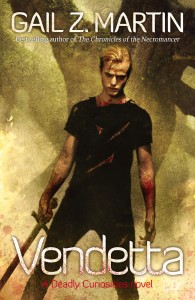 Whenever I get stuck on what needs to happen in a story to get from where I am to where it needs to go, I research. Every time, I’ll find something either by design or serendipity that provides exactly the imagination fodder to get me around where I’m blocked. Often, this means poking around on the internet, following links from one site to another until the right bit of information appears. Sometimes, I go to my library and see what I can find in my books, where my memory can be jogged about a cool detail I’ve forgotten about that is perfect for the situation. Or I’ll go watch something on the History Channel, usually on military tactics or equipment. Maybe I’ll watch a movie with good fight scenes and pay attention to what happens for ideas. Research is better than WD-40 for getting you unstuck.
Whenever I get stuck on what needs to happen in a story to get from where I am to where it needs to go, I research. Every time, I’ll find something either by design or serendipity that provides exactly the imagination fodder to get me around where I’m blocked. Often, this means poking around on the internet, following links from one site to another until the right bit of information appears. Sometimes, I go to my library and see what I can find in my books, where my memory can be jogged about a cool detail I’ve forgotten about that is perfect for the situation. Or I’ll go watch something on the History Channel, usually on military tactics or equipment. Maybe I’ll watch a movie with good fight scenes and pay attention to what happens for ideas. Research is better than WD-40 for getting you unstuck.
Research is also how you ground a story in its time and place. My urban fantasy series, Deadly Curiosities, is set in modern-day Charleston, SC. The steampunk series I co-author with my husband, Larry N. Martin, is set in an alternative history Pittsburgh, PA. A lot of the research we do—both online and by visiting the cities—helps to impart a sense of place and make the setting one of the characters. When you set a story in a specific place, ideally it becomes so much an outgrowth of its location that you (and readers) couldn’t imagine it being anywhere else. Even if you’ve lived in a city or region, you don’t know everything about it. In fact, sometimes we know less about places we’ve lived because we never even take a tourist’s view and do the landmarks, let alone a scholar’s view. Once you start digging, you’ll find tidbits of history, important historical figures, old controversies and buried incidents that provide great mental fodder.
One of the most valuable things research does for me is to take historic figures out of their wax-museum frozenness and the myths that have been built up around them and reveal their humanness, good and bad. (Read the bitter campaign feuding between Founding Fathers John Adams and Thomas Jefferson if you don’t believe me.) While many of these figures were well-known in their own time, they had achieved nothing near the mythic stature we’ve given them since then. Some were actually dismissed or overlooked in their own time because the ramifications and importance of what they did was not yet clear.
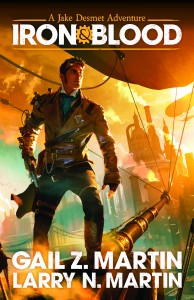 By returning historic figures to human scale, I gain perspective as an author on how to create fictional characters who change the world. One thing I learned is that aside from a few megalomaniacs like Napoleon, most of these larger-than-life historical figures were pursuing their own personal agendas, not obsessing over their historic legacy. They were trying to solve a problem or gain an objective, beat a rival or win a prize. That their actions would leave ripple effects throughout the rest of history wasn’t on their minds. They were—as we frequently are now—oblivious to the fallout from their actions, at least in the grand scheme of things. So a general might want to win a battle, and have no clue that by doing so, the stage is set for a disastrous insurrection fifty years later that will topple the very empire he represents. A person in a position of power won’t countenance a new idea because it threatens his ego, and the ultimate advantage goes to his rival, changing the course of history.
By returning historic figures to human scale, I gain perspective as an author on how to create fictional characters who change the world. One thing I learned is that aside from a few megalomaniacs like Napoleon, most of these larger-than-life historical figures were pursuing their own personal agendas, not obsessing over their historic legacy. They were trying to solve a problem or gain an objective, beat a rival or win a prize. That their actions would leave ripple effects throughout the rest of history wasn’t on their minds. They were—as we frequently are now—oblivious to the fallout from their actions, at least in the grand scheme of things. So a general might want to win a battle, and have no clue that by doing so, the stage is set for a disastrous insurrection fifty years later that will topple the very empire he represents. A person in a position of power won’t countenance a new idea because it threatens his ego, and the ultimate advantage goes to his rival, changing the course of history.
Research makes the writing world go ‘round. It’s not only the font of ideas, it’s also entertaining in a guilty pleasures sort of way, like reading tabloid headlines in the grocery line. Just remember to bring popcorn!
My Days of the Dead blog tour runs through October 31 with never-before-seen cover art, brand new excerpts from upcoming books and recent short stories, interviews, guest blog posts, giveaways and more! Plus, I’ll be including extra excerpt links for my stories and for books by author friends of mine. You’ve got to visit the participating sites to get the goodies, just like Trick or Treat! Details here: www.AscendantKingdoms.com
Book swag is the new Trick-or-Treat! Grab your envelope of book swag awesomeness from me & 10 authors http://on.fb.me/1h4rIIe before 11/1!
Trick or Treat! Excerpt from my new urban fantasy novel Vendetta set in my Deadly Curiosities world here http://bit.ly/1ZXCPVS Launches Dec. 29
More Treats! Enter to win a copy of Deadly Curiosities! https://www.goodreads.com/giveaway/show/160181-deadly-curiosities
Treats! Enter to win a copy of Iron & Blood! https://www.goodreads.com/giveaway/show/160182-iron-blood
Treats not Tricks! An excerpt from Girl In The Hourglass https://especbooks.wordpress.com/2015/10/05/espec-excerpts-the-girl-in-the-hourglass-by-drew-bittner/
Halloween goodies! Here’s an excerpt from What Really Happened At Little Big Horn https://especbooks.wordpress.com/2015/07/01/winner-what-really-happened-at-the-battle-of-little-big-horn/
More Halloween loot! Read an excerpt from “Coffin Box,” one of my Deadly Curiosities short stories http://bit.ly/SDCIjx
About the Author

Gail Z. Martin is the author of the upcoming novel Vendetta: A Deadly Curiosities Novel in her urban fantasy series set in Charleston, SC (Dec. 2015, Solaris Books) as well as the epic fantasy novel Shadow and Flame (March, 2016 Orbit Books) which is the fourth and final book in the Ascendant Kingdoms Saga. Shadowed Path, an anthology of Jonmarc Vahanian short stories set in the world of The Summoner, debuts from Solaris books in June, 2016.
Other books include The Jake Desmet Adventures a new Steampunk series (Solaris Books) co-authored with Larry N. Martin as well as Ice Forged, Reign of Ash and War of Shadows in The Ascendant Kingdoms Saga, The Chronicles of The Necromancer series (The Summoner, The Blood King, Dark Haven, Dark Lady’s Chosen) from Solaris Books and The Fallen Kings Cycle (The Sworn, The Dread) from Orbit Books and the urban fantasy novel Deadly Curiosities from Solaris Books.
Gail writes four series of ebook short stories: The Jonmarc Vahanian Adventures, The Deadly Curiosities Adventures, The King’s Convicts series, and together with Larry N. Martin, The Storm and Fury Adventures. Her work has appeared in over 20 US/UK anthologies. Newest anthologies include: The Big Bad 2, Athena’s Daughters, Realms of Imagination, Heroes, With Great Power, and (co-authored with Larry N. Martin) Space, Contact Light, The Weird Wild West, The Side of Good/The Side of Evil, Alien Artifacts, Clockwork Universe: Steampunk vs. Aliens.


